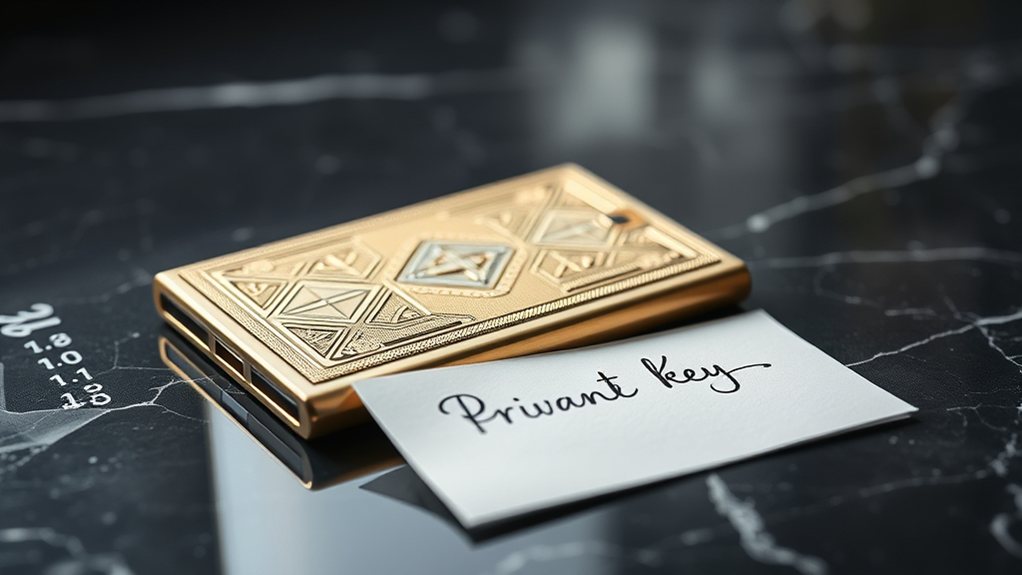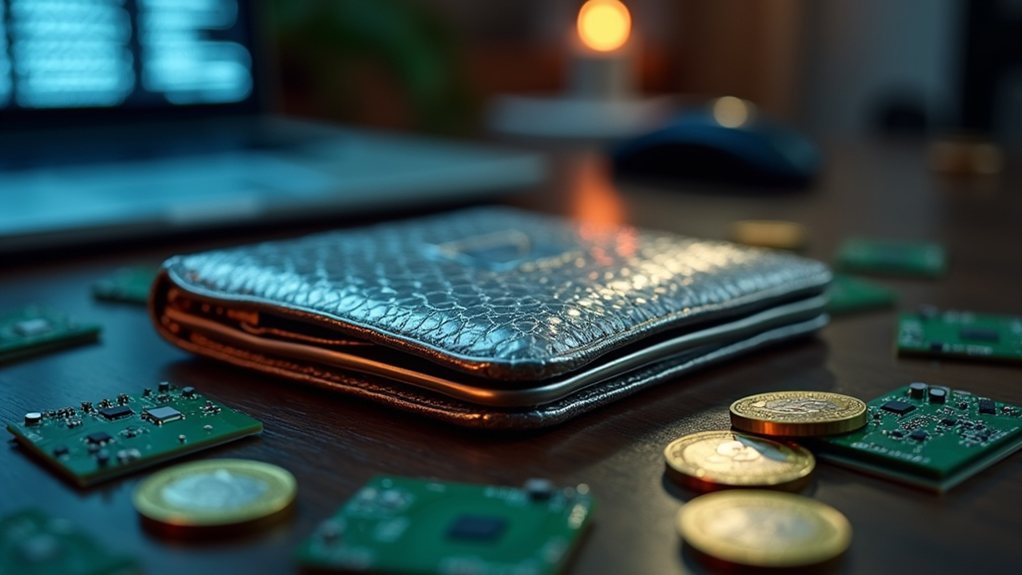A private key is a secret code that allows access to digital assets and information. It works with a public key in cryptography systems to encrypt, decrypt, and sign data. In cryptocurrency, private keys prove ownership and authorize transactions. These keys can be stored in hardware wallets, software applications, or paper backups. Their security is critical because if lost or stolen, there's often no way to recover the associated assets. The following information reveals essential management practices.

A private key is a secret code that serves as an essential security tool in the digital world. It's a cryptographic variable used to encrypt and decrypt data, known only to its owner. This key is mathematically linked to a public key, creating a pair that works together in asymmetric cryptography. Private keys are typically long, random strings of characters that must remain confidential to maintain security.
The main function of a private key is to decrypt messages that have been encrypted with its corresponding public key. It also signs digital transactions and documents, proving the identity of the sender. In cryptocurrency, private keys prove ownership of digital assets and authorize access to blockchain wallets. Every private key generates a unique public key that can be safely shared with others.
Several types of private keys exist in modern cryptography. These include ECDSA (Elliptic Curve Digital Signature Algorithm), which is popular in Bitcoin and other cryptocurrencies. RSA (Rivest-Shamir-Adleman) is widely used across the internet. Other types include DSA (Digital Signature Algorithm), EdDSA (Edwards-curve Digital Signature Algorithm), and Schnorr signatures, which offer different security and performance benefits.
Private keys are created using cryptographically secure random number generators. For cryptocurrencies, they're typically 256 bits long and can be represented in various formats like hexadecimal or WIF (Wallet Import Format). For maximum security, private keys should be generated offline and are unique to each user or wallet. In symmetric encryption, the same key is used for both encryption and decryption processes, making key security even more critical.
Security of private keys is paramount. If someone else obtains your private key, they gain complete access to your digital assets or encrypted data. Loss of a private key often results in permanent loss of associated assets, as there's no way to recover them without the key. Even with today's advanced technology, brute-force attacks to guess a private key remain computationally infeasible due to the enormous number of possible combinations. The security strength of private keys is significantly enhanced by their length and randomness, making longer keys exponentially more difficult to crack.
Users can store private keys in several ways. Hardware wallets are physical devices specifically designed for securely storing keys offline. Paper wallets are physical printouts of the key information. Software wallets are applications on computers or phones. Some people use brain wallets, where they memorize a passphrase that generates the key. Others store keys in encrypted digital files.
The most secure approach to managing private keys includes using strong encryption for digital storage, creating multiple backups in different secure locations, and considering multi-signature schemes that require multiple keys to authorize transactions. Many security experts recommend using air-gapped devices (computers disconnected from the internet) for key generation and transaction signing to prevent online attacks. For website security, SSL/TLS certificates utilize private keys to decrypt data that was encrypted with the server's public key, ensuring secure transmission of sensitive information like passwords and credit card details.
Frequently Asked Questions
How Do I Store My Private Key Securely?
Private keys can be stored securely using hardware wallets like Ledger or Trezor. These physical devices keep keys offline, safe from online threats.
Cold storage options include paper wallets for those who don't make frequent transactions. Users often encrypt their keys with strong passwords before storing them digitally.
Experts recommend limiting access to keys and implementing backup procedures in case of device loss.
Can I Change My Private Key if Needed?
Yes, private keys can be changed when necessary. Users can generate a new key pair for several reasons: security breaches, regular rotation policies, or when upgrading encryption methods.
The process involves creating new keys and updating certificates. This change typically requires reissuing SSL/TLS certificates and may cause brief service interruptions.
Organizations often schedule regular key rotations as part of their security protocols.
What Happens if I Lose My Private Key?
If someone loses their private key, they permanently lose access to their cryptocurrency.
There's no way to recover it – no reset button or customer service to call. The funds remain locked in the blockchain forever.
This is a serious problem in the crypto world. It's estimated that about 20% of all Bitcoin is permanently lost due to missing private keys, worth billions of dollars.
Should I Share My Private Key With Anyone?
Sharing a private key isn't recommended in most situations.
Cryptocurrency experts warn that anyone with access to a private key can control all funds in that wallet.
While there are limited cases where sharing might be necessary—such as estate planning or setting up multi-signature wallets—safer alternatives exist.
These include view-only addresses, multi-signature schemes, and designated beneficiary options that don't require exposing this sensitive information.
How Are Private Keys Different From Passwords?
Private keys differ from passwords in several key ways.
They're mathematically generated, typically 256 bits long, and nearly impossible to crack. Unlike passwords, private keys aren't transmitted over networks, making them immune to common hacking methods. They provide cryptographic proof of ownership that passwords can't match.
However, they can't be reset if lost. Private keys offer stronger security but require careful management and backup procedures.














